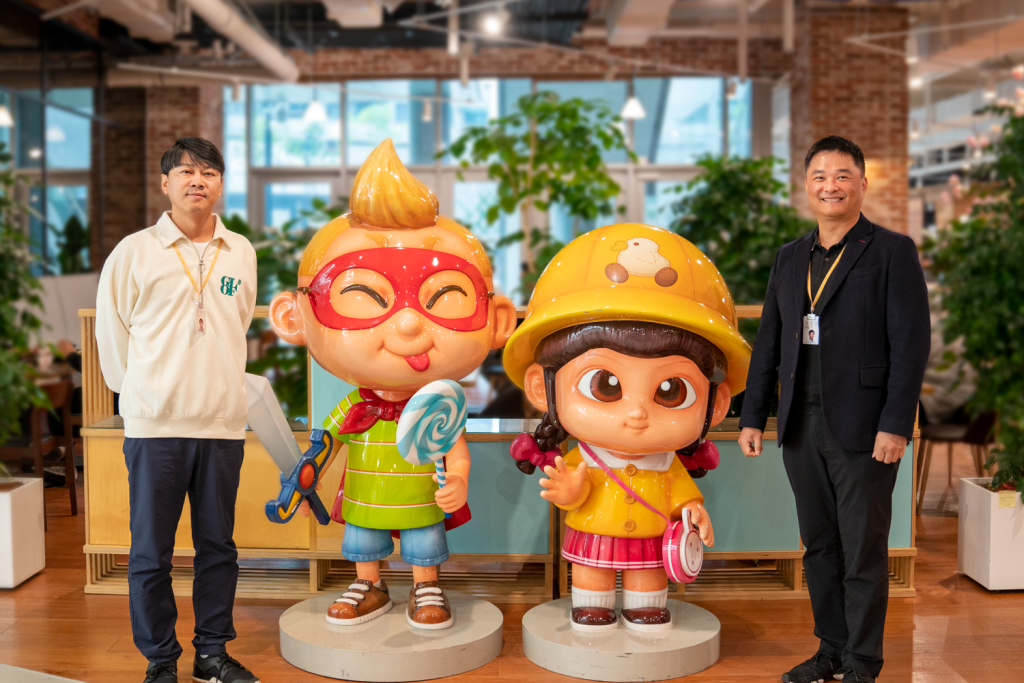
Launched last month, Meta World: My City from Netmarble N2 is a blockchain real estate digital board game with additional virtual real estate building and trading as well as social metaverse activities.
Netmarble N2’s previous work includes the similarly Monopoly-like game Let’s Get Rich. Meta World: My City is a deeper game, incorporating strategy cards as well as dice throws. It’s also based on real world locations, with the first being Manhattan. Additional cities like Paris, London, Seoul, and Tokyo are planned for the future. GameDaily spoke to Min-Kwan Kwon, CEO of Netmarble N2 and head of development Youngsuk Hong.
GameDaily: What are the most important features in Meta World My City that you consider to be genuine innovations in blockchain gaming design?
Min-Kwan Kwon: We developed Meta World: My City in a way that anyone can enjoy both board games and virtual real-estate collections.
The first innovation we would like to highlight is Union Tokenomics, which enables players to stably enjoy the content. Most blockchain games are based on a token unique to that game, and this results in continuous inflation within the game. In contrast, we built stable tokenmics by controlling the supply of tokens via Netmarble’s A3: Still Alive game and leading players to use those same tokens in Meta World: My City, which is a globally competitive game.
For example, the Inetrium (ITU) token, which was previously only available in A3: Still Alive, will be obtainable in Meta World: My City in exchange for ‘Meta Cash’ (an in-game token available to those that have in-game virtual real estate). This essentially opens up another means of having Inetrium – one that guards against its inflation by only circulating an amount of Meta Cash – and allows players’ enjoyment of one game to benefit the other.
Second, Meta World: My City is based on a cadastral map of real cities, which allows players to explore what it’s like to have virtual lands and buildings in famous locations around the world. Whereas a lot of virtual real estate games are limited to virtual land transactions only, Meta World: My City is unique in that it provides other content alongside the virtual real estate functionality, such as participating in board games, creating and customizing avatars, and more. We plan to increase the value by adding even more contents in terms of the game and metaverse.
GameDaily: How much of your audience do you expect to interact with the game using MBX blockchain, as opposed to ordinary Web2 gameplay mechanics?
Youngsuk Hong: More than 30 percent of the revenue comes from blockchain gamers, which exceeded our initial expectations. It turns out that these players not only collect virtual land and engage in transactions, but also actively play board games.
Considering the fact that Meta World: My City has just come out and the original title attracted more than more than 200 million players globally, we are confident that a couple hundred million players will participate and understand the blockchain ecosystem via Meta World: My City in the long run.
GameDaily: How big do you expect your player base to be within the next six months, or year?
Min-Kwan Kwon: We are going to update the contents step by step. As of now, we’re primarily targeting the regions where the original title Let’s Get Rich: Meta World has been successful. However, we are planning to add various genres of casual games to attract even more players. Approximately 2 million players have experienced our game already, and we’re aiming for 10 million players within the year. We will do our best to make this game one that hundreds of millions of players can enjoy.
GameDaily: What lessons did you learn about blockchain game design while making the game?
Min-Kwan Kwon: We tried to benchmark various blockchain services at the outset of this project, and it seemed like blockchain games were not well-positioned in the market at the moment. In this process, we learned that the Meta World: My City needs to be a game that is based on sustainable tokenomics, which all participants can actually benefit from.
Thus, we tried to come up with a stable system for the long run and ITU Union Tokenomics became the solution. It might not provide overwhelming profits but it is definitely stable. We are going to continue adding value through continuous in-game content updates which will benefit all participants within the ecosystem.
GameDaily: Finally, can you talk about some of your plans for the future of the game?
Youngsuk Hong: At this moment, we are mainly targeting South East Asia where the original title was most popular. Currently the virtual real estate collection feature is available only for Manhattan, NYC, but cities like Paris, London, and Bangkok will be added at a later time. In addition, we are going to further update other popular casual genre games and Netmarble’s overall metaverse space, in which avatars can interact.
Colin Campbell has been reporting on the gaming industry for more than three decades, including for Polygon, IGN, The Guardian, Next Generation, and The Economist.
 GameDaily.biz © 2025 | All Rights Reserved.
GameDaily.biz © 2025 | All Rights Reserved.